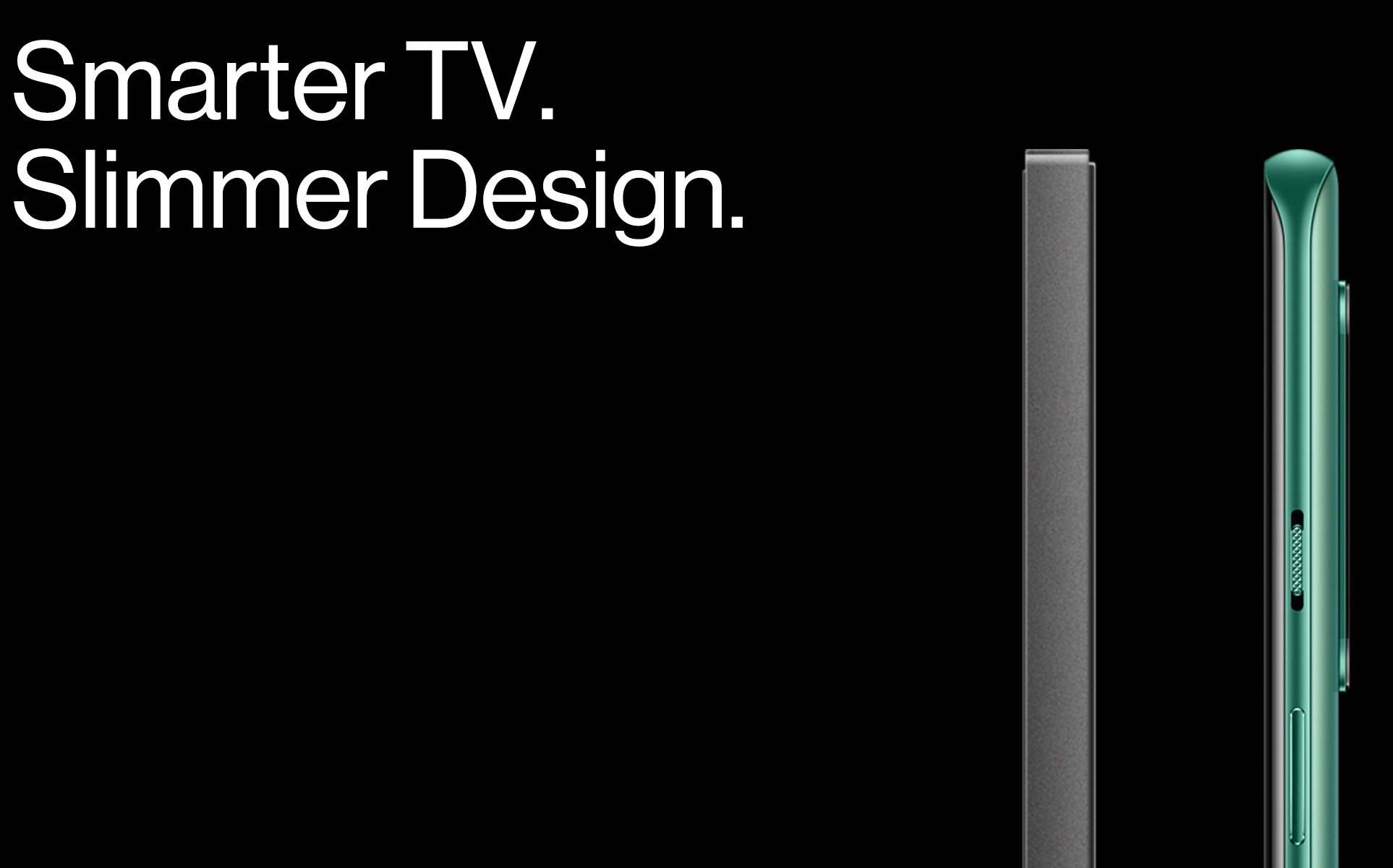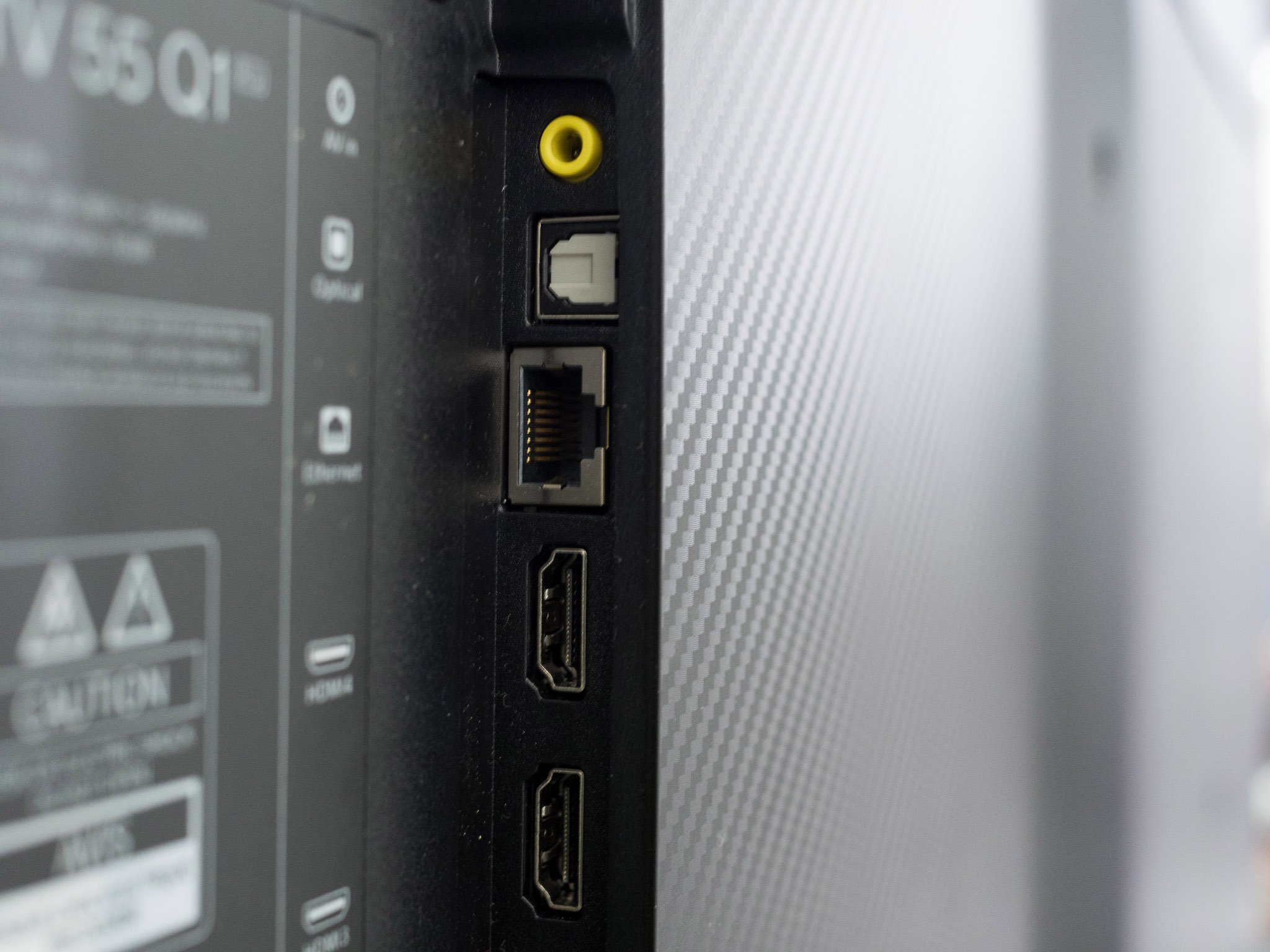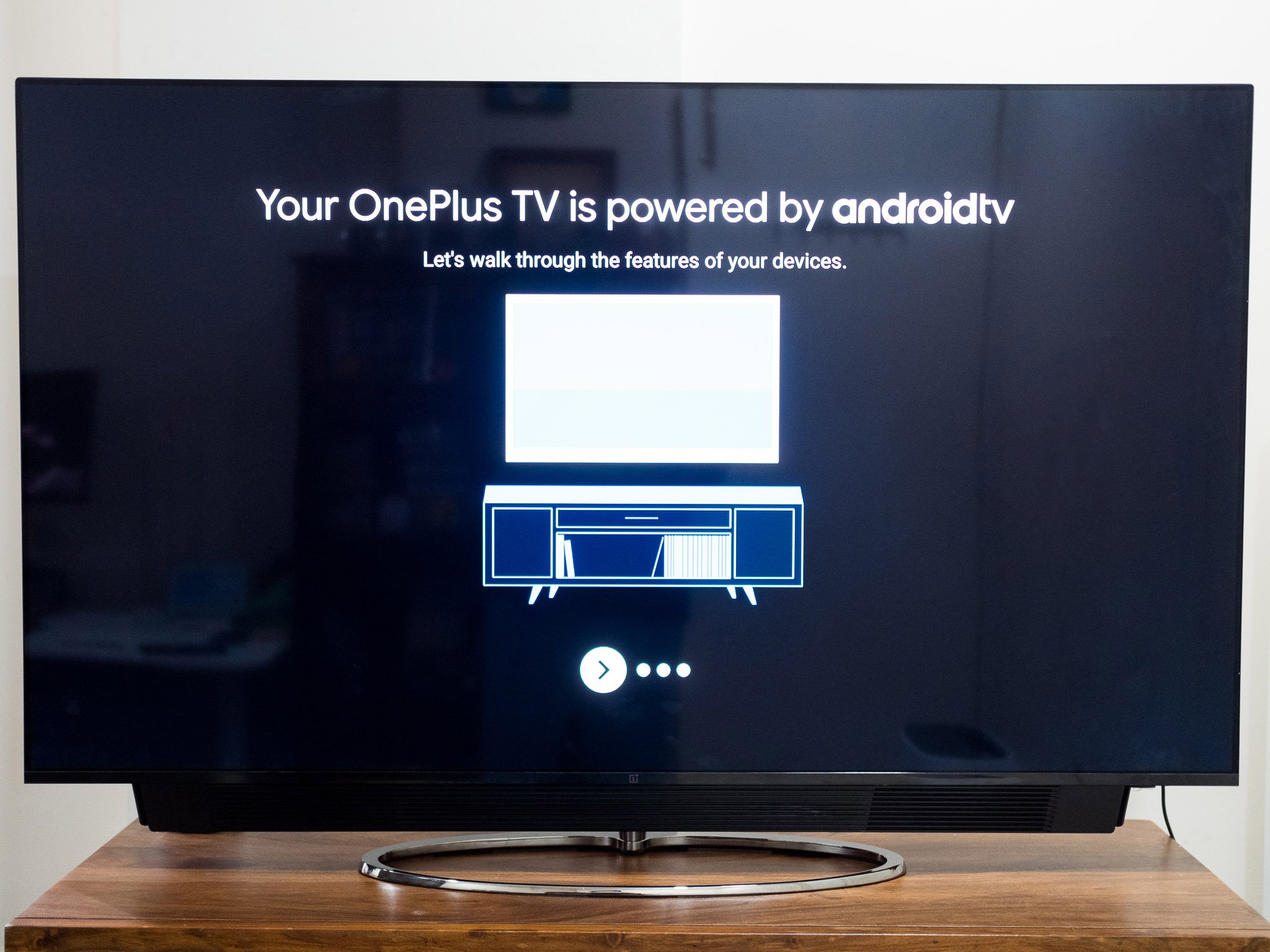Exclusive: Pete Lau on how OnePlus plans to differentiate its upcoming TVs

OnePlus' upcoming TVs have an ultra-thin design with slim bezels.
OnePlus made its foray in the TV category last year with the OnePlus TV Q1 and Q1 Pro, with both models aimed at the premium category in India. This time around, OnePlus is shifting focus to the affordable segment with its upcoming TVs. The company already revealed that its new TVs will be starting for under ₹20,000 ($265), which is less than a third of the cost of the OnePlus TV Q1.
OnePlus is essentially opening up its TVs to a wider audience, so ahead of the the launch, I talked to OnePlus founder and CEO Pete Lau to get a better sense of what's on the horizon. Lau is heavily invested in the design of all OnePlus products, and he believes that design is a key point of differentiation for the company.
Design is a subject Lau brings up often; I distinctly remember a conversation I had with him two years ago in Shenzhen where he talked about how his team went through dozens of red hues before settling on the color for the OnePlus 6 Red. That particular shade of red ended up costing several dollars more than a standard hue, but Lau signed off on it because it ultimately made the phone stand out.
Anyway, back to the TVs. OnePlus wants to differentiate its products by focusing on two key pillars: design and user experience. Lau said that even though OnePlus is shifting focus to the budget segment with its upcoming TVs, it isn't compromising when it comes to the design.
To that effect, OnePlus' upcoming TVs have an ultra-thin design that comes in at just 6.9mm — less than that of the OnePlus 8 — and OnePlus furnished a render of the TV next to the OnePlus 8 to illustrate the point. Obviously, the thickness is not uniform throughout the length of the TV; the bottom portion needs to be wider as it houses all the requisite components and the built-in speakers, but it is still incredible that OnePlus is able to pull off an ultra-thin design in this category.
As for the speakers, Lau revealed that the TVs feature an innovative acoustic arrangement where the speakers are rotated by 90 degrees. This allowed the company to fit two large full-range speakers on the TV, with Lau noting that it has resulted in "50% deeper bass." With the new TVs, Lau said that the guiding principle was to deliver a "burdenless experience" with the TV being a "projection of the user's personality."
With the new range of OnePlus TVs, we look to provide a premium aesthetic design that not only perfectly serves the function of the product, but is also great to look at. A TV tends to take center stage in a home environment, however an honest design embodies the product itself, so that from the moment you set your eyes on it, the device will speak for itself.
The guiding principle for the new range of OnePlus TVs was to provide a burdenless experience, which celebrates every aspect of a smart TV, ranging from the complexities of its engineering to the function of every component. We believe that a user must feel completely unobstructed in his experience, and the TV should be a projection of the user's personality onto his home.
To complement the thin side profile, OnePlus is trimming the bezels on its upcoming TVs. While thin bezels are common in the premium category, that isn't the case in the affordable segment. Lau revealed that OnePlus' upcoming TVs sport a 95% screen-to-body ratio, noting that the thin bezels is a "stand out feature" in this category.
While we are expanding to the premium affordable segment, our emphasis on design remains at the forefront as always. This is evident in our bezel-less design with a 95% screen to body ratio, which is common in high-range TVs but is a stand out feature in the premium affordable segment. This, coupled with an immersive viewing experience on the display with a 93% DCI-P3 color gamut will stand out as a better viewing experience among TVs in the segment.
OnePlus' upcoming TVs also sport a carbon fiber pattern at the back that's similar to the Q1 series (pictured above). OnePlus is no stranger to this kevlar pattern — having used it on phones and first-party cases — and by offering it on the upcoming TVs, OnePlus is looking to maintain a uniform aesthetic across its product lines:
Our approach to design has always been driven by our burdenless philosophy which ensures that a piece of technology is aesthetically bold yet pleasing to look at with a sense of ease. However, actualizing such a feeling requires clear vision and determination to get it just right every time.
As a company we recognize that "no detail is too small", so we tirelessly work every day to refine the subtle details, even if those details may seem minor. When all of these details come together, the end result is an unforgettable product that becomes more beautiful every time you look at it.
Creating the unique carbon fiber back for the new OnePlus TVs is a great example of the attention we give to little details that make up a whole, ensuring premium quality that has now come to be synonymous with the brand.
As was the case with the red hue on the OnePlus 6, OnePlus' design team spent an inordinate amount of time in getting the carbon fiber pattern at the back of the TV just right. Lau noted that there were several key challenges that had to be addressed during production: as the carbon fiber pattern is intricate, even minor flaws during injection molding would ruin the entire panel. Slight variations in temperature would also cause the injection molding to be uneven.
To overcome this, Lau said that his team had to redesign the hot runner on the injection model to eliminate even minor variances in temperature and ensure a smooth flow of the raw materials onto the back shell. OnePlus also had to adjust the depth of the injection model, and consult experts for finding the carbon fiber material with the correct texture. Lau says these tiny details make a lot of difference.
We believe that truly good design does not deliberately pursue the exaggeration of the external form. In fact, it may even extend to a prioritization of the internal form: the material, the craftsmanship, and the tiny details. With the TV, we are looking to create something that not only enhances the aesthetic of your living room, but is a pleasure to use.
User experience is another core tenet for OnePlus; the company debuted its OnePlus Connect service on the Q1 series last year, and continues to make strides with the OxygenPlay content curation platform. Lau didn't reveal any specific features, but mentioned that OnePlus' goal is to "set the standard" for smart TV products.
Our Never Settle mentality and our burdenless design philosophy are at the core of OnePlus product development, regardless of the price point. With the new OnePlus TVs, we wanted to make sure that the user experience would be no different.
As with every product, exceptional design isn't just about the things you see, but also about the little things that you don't even notice. We will be sharing information about software features that sets us apart in the coming weeks. Our goal is for OnePlus to set the standard for future smart TV products.
During the launch of the Q1 series last year, Lau talked about the TV becoming the center of the smart home; serving as a dashboard for smart home products. By introducing affordable TVs, OnePlus is now looking to expand its product category to a wider userbase. Companies are focusing on building a connected ecosystem to differentiate themselves, and Lau says the new TVs will be a step toward unlocking that ecosystem play.
In 2019, the OnePlus TV Q Series was the first step towards the OnePlus ecosystem. In 2020, we hope to build on the momentum and start strategically diversifying into new product categories and new price points. The new OnePlus TVs are a step towards unlocking the full potential of technology in even more homes. We are consistently working towards creating a connected ecosystem with a seamless integration of products and services, benefiting even more aspects of a person's life. We believe that this will enhance a user's daily experiences with technology in these four connected zones – the home, the car, the office and self.
Given our unwavering focus on creating a premium user experience, coupled with our technological prowess, we believe that OnePlus can fill the gap with intelligent connectivity, providing seamless integration between all OnePlus offerings, which is accessible to a larger audience.
OnePlus has a vocal community of users and fans, and the company regularly solicits feedback from the community to improve its products. This is clearly evident when you look at just how far OxygenOS has come over the years, and OnePlus is now doing the same with its TVs. Lau said that the OnePlus community played an active role in designing the OnePlus TV experience.
The OnePlus community is one of the most vocal and passionate parts of the OnePlus family. The community has played an active role in our development over the last six years, and the feedback we received has played a crucial role in offering useful feedback that helps guide some of our product decisions.
Over the last six months, we have worked hand-in-hand with the OnePlus TV Product Ninjas, a group of passionate individuals from our community who have helped the team to build a better OnePlus TV experience. Our OnePlus TV Product Ninjas have played an integral role in creating useful features which aim to enhance the smart TV experience.
With the upcoming TVs slated for an official unveil on July 2 in India, OnePlus is set to embark on an exciting chapter. The company ventured into the high-end category last year with the OnePlus 7 Pro and the OnePlus TV Q1 series, but it is the value segment where the company is its strongest. By turning its attention once again to the affordable category, OnePlus is effectively going back to its roots, and that will be welcome news to OnePlus fans.


No comments